How to clean stainless steel pans so they look new again
These expert tips and tricks will make cleaning your stainless steel pans a breeze
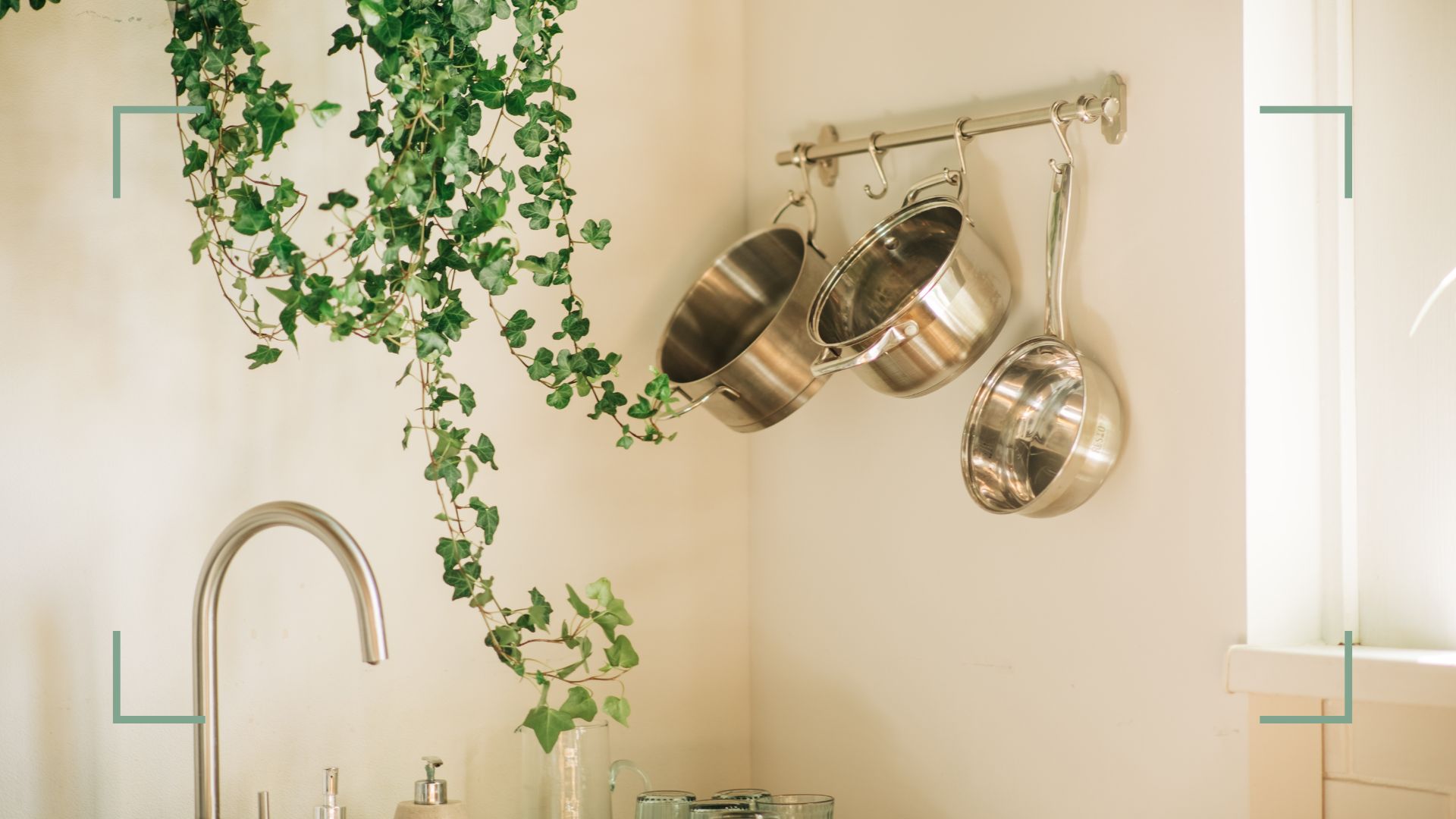
If your much-loved cookware has seen better days, and you’re wondering how to clean stainless steel pans to restore them to their original shine, rest assured that the process isn't all that complicated – as long as you're using the right method and tools for the job.
Stainless steel pans are fantastic for cooking almost anything, as they can conduct and retain heat brilliantly for a speedy cooking experience. However, their slightly more delicate surface can make them prone to visible water spots, burnt-on stains, and other marks. "Stainless steel is a long-lasting, durable material that can withstand high temperatures," Emma Lewis-Jones, product director at CookServeEnjoy explained. "But, unlike non-stick pans, stainless steel cookware can be prone to discoloration, and they take a bit more maintenance to keep in tip-top condition."
But if you do take proper care of them and regularly address any staining, you can easily have them looking like new once again, even if you've had yours for years. To figure out how to clean stainless steel pans without ruining them, we spoke to cookware and cleaning experts, to discover the best ways to take care of these handy cooking instruments.
What you'll need:
Cleaning stainless steel pans is relatively easy, and doesn’t require many tools. In fact, you probably already have a lot of these items within your kitchen cleaning kit.
To clean stainless steel pans, you’ll need:
- A wooden spoon/spatula
- Washing up liquid/dish soap
- A gentle brush or sponge
- A dry microfiber cloth
- A dish towel
- Disposable kitchen towels
- Baking soda
- Vinegar
How to clean stainless steel pans for everyday use
1. Allow the pan to cool and get rid of residual food/oil
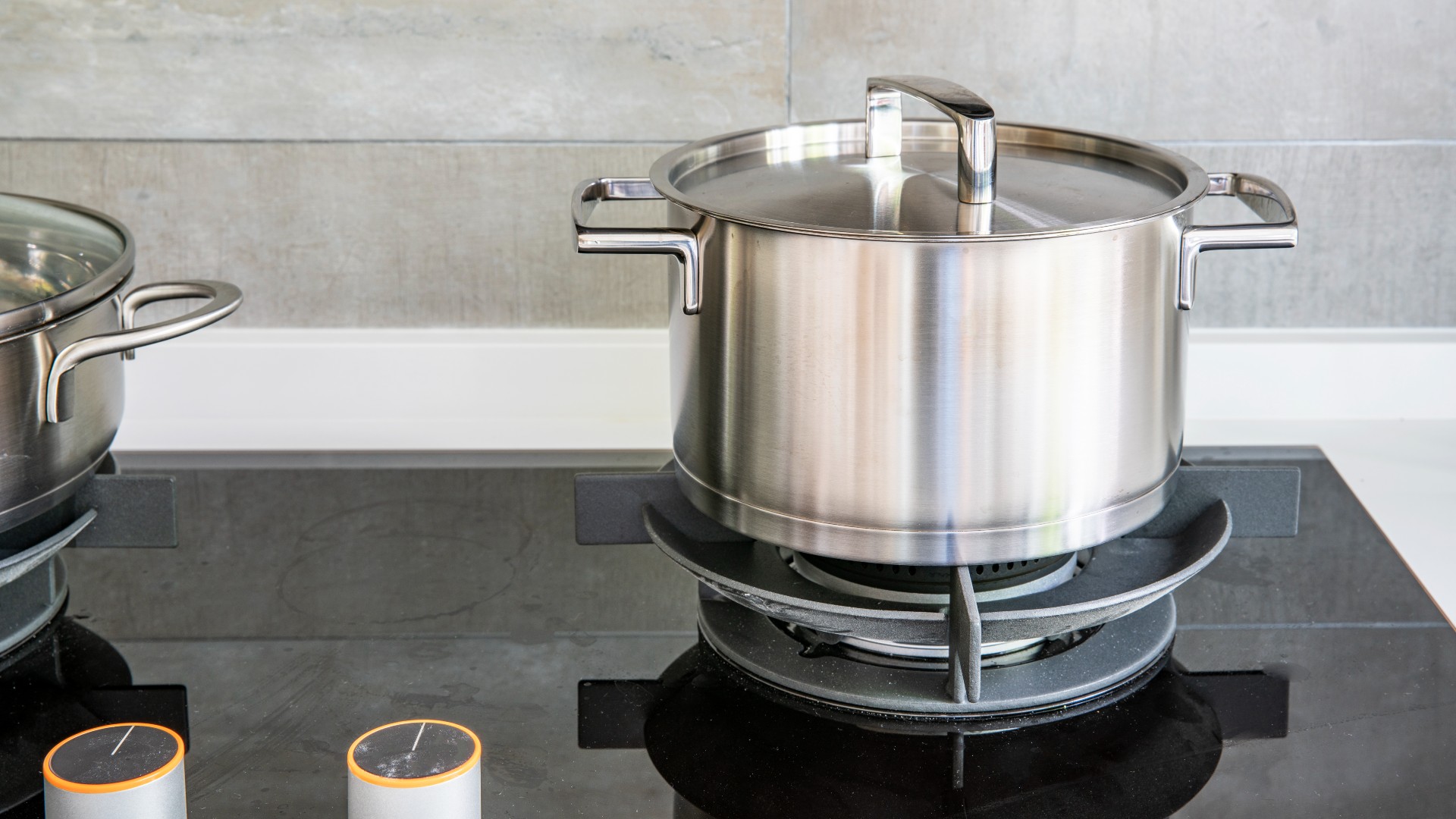
If you’ve just used your stainless steel pot or pan, the most important first step is to let it cool down, both to avoid burning yourself and to avoid damaging your pan.
Once cooled, gently scrape off any stuck-on food with a wooden spoon or spatula Then, Patricia Harrison, founder of cookware store Ceci Paolo, advises removing as much grease as possible. She said, "Before cleaning, remove any residual oil or fat from the pan using paper towels."
Sign up for the woman&home newsletter
Sign up to our free daily email for the latest royal and entertainment news, interesting opinion, expert advice on styling and beauty trends, and no-nonsense guides to the health and wellness questions you want answered.
2. Let it soak in hot soapy water
Next, Emma advises that you "soak your pan in hot soapy water, and leave for around 30 minutes. This should help break down and dissolve the food particles, loosening them from the pan." Use dish soap/washing up liquid to soap up your water.
You'll want to avoid using cold water for this part, especially if your pan is still warm. Cleaning expert Antoinette Daniel, founder of cleaning agency Just Helpers, explained, "It's important to avoid cleaning a hot pan with cold water, as it can warp the steel and force some of the stains to engrain. So make sure to give it enough time to cool down."
3. Scrub the pan gently
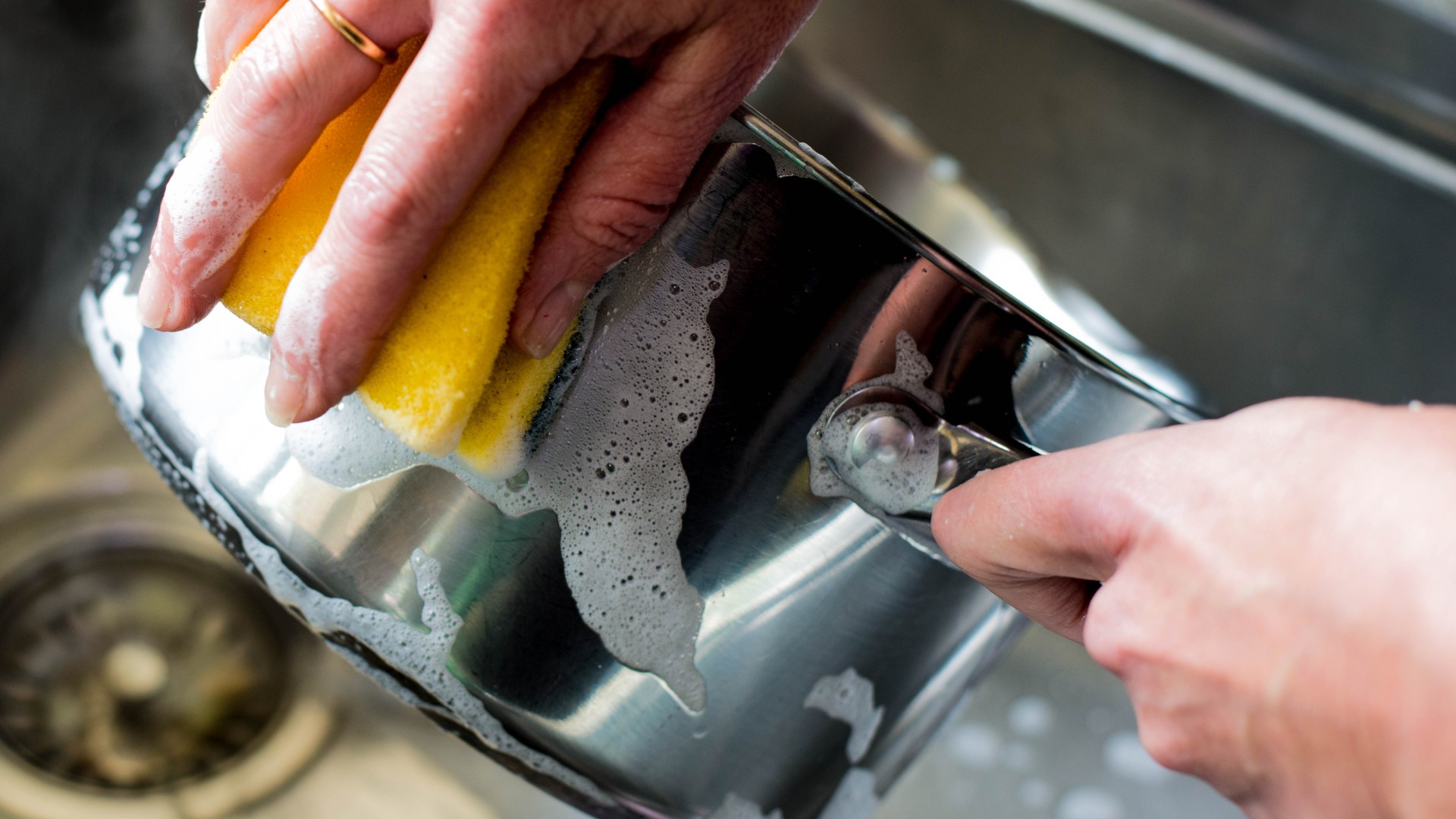
The next step to getting your stainless steel pots and pans gleaming is to gently scrub them in your warm soapy water. "Use a soft nylon pad, brush, or sponge to clean your pan," Patricia advised.
In fact, you're going to want to choose your sponge carefully, as Emma warned that you should "avoid using harsh cleaning brushes like steel scourers, as stainless steel scratches easily." This is true for cleaning any delicate surface, such as cleaning brass, or cleaning a mirror.
However, cleaning expert Nicki Rodriguez, of Essex House Dolly, shared that the ever-popular Scrub Daddy could be a handy tool here. "I recommend using a Scrub Daddy/Mummy as this doesn’t scratch the steel, and is a fantastic item for cleaning hard-to-shift food debris," she told woman&home.
4. Rinse your pan out
After this, make sure to get all of the soap and water out of your pan, by rinsing it in running water. Now that the pan is clean, this can be cold or hot water – whichever you prefer.
There should be no soap marks left on the pan, given that soap can potentially leave a visible mark on stainless steel.
5. Dry and buff the pan
After rinsing, you shouldn’t pop your pan or pot straight on a draining rack. Instead, dry it straight away.
"Rinse and dry the stainless steel cookware thoroughly before storing away," she said. "Drying your cookware straight after washing helps to prevent water spots," advises Patricia.
To get it looking its best, try buffing it too, as a very final step. "Buffing the stainless steel surfaces with a dry microfiber cloth will restore its shine," Patricia adds.
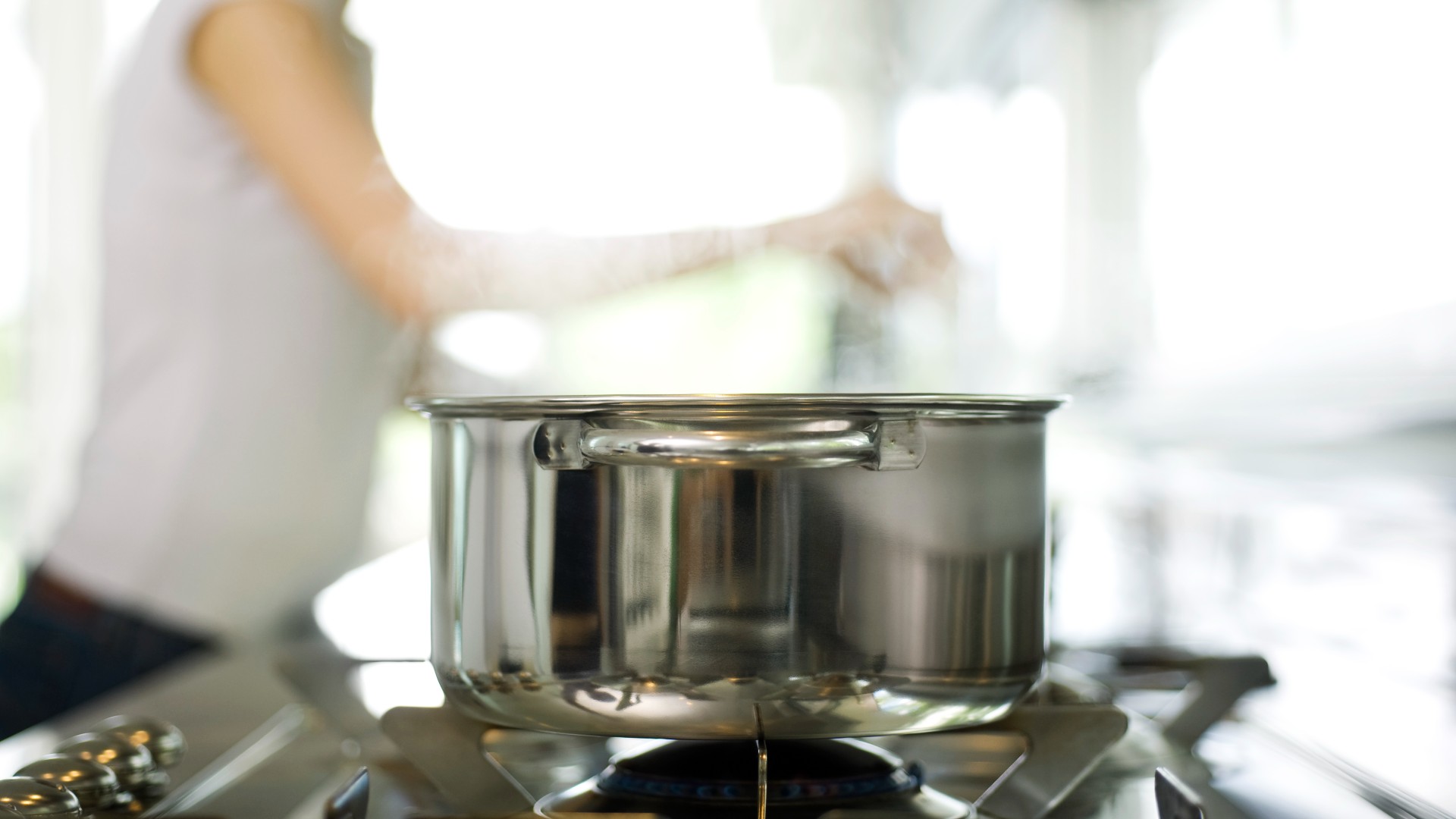
How to clean discolored stainless steel pans
As mentioned, stainless steel pans can be prone to brown marks (like most pans, even the best induction pans), and can even produce a kind of rainbow stain, that can feel slightly alarming. But worry not; both of these kinds of discolorations are entirely normal. And in fact, they're even expected. A spokesperson from Le Creuset explained, "Using your trusted pan over and over means it’s bound to look a little seasoned eventually."
Explaining why brown marks occur, Emma said, "Stainless steel pans can sometimes lose their shine and develop unsightly discoloration when exposed to high heat for a long time, or when food gets burnt onto the surface."
And, of the rainbow color, Patricia revealed, "This is perfectly safe, but is caused by a chemical reaction that changes the color of the metal when combined with air and high heat."
So if your pans have fallen foul of this kind of staining, what can you do to get rid of it?
1. Put together a vinegar and water solution
Cleaning with vinegar is popular for a reason – it's a great way to deal with most items in your home and especially stainless steel pans. "White vinegar is an excellent natural cleaning agent and its acidity can break down oxidized discoloration, helping to restore the shine and color of stainless steel surfaces," Emma says.
Before you get cleaning, you'll need to create a mixture of vinegar and water, advises Patricia. "Dilute some white vinegar with water, at a ratio of 1:6."
2. Spray or pour this into the pan, and scrub
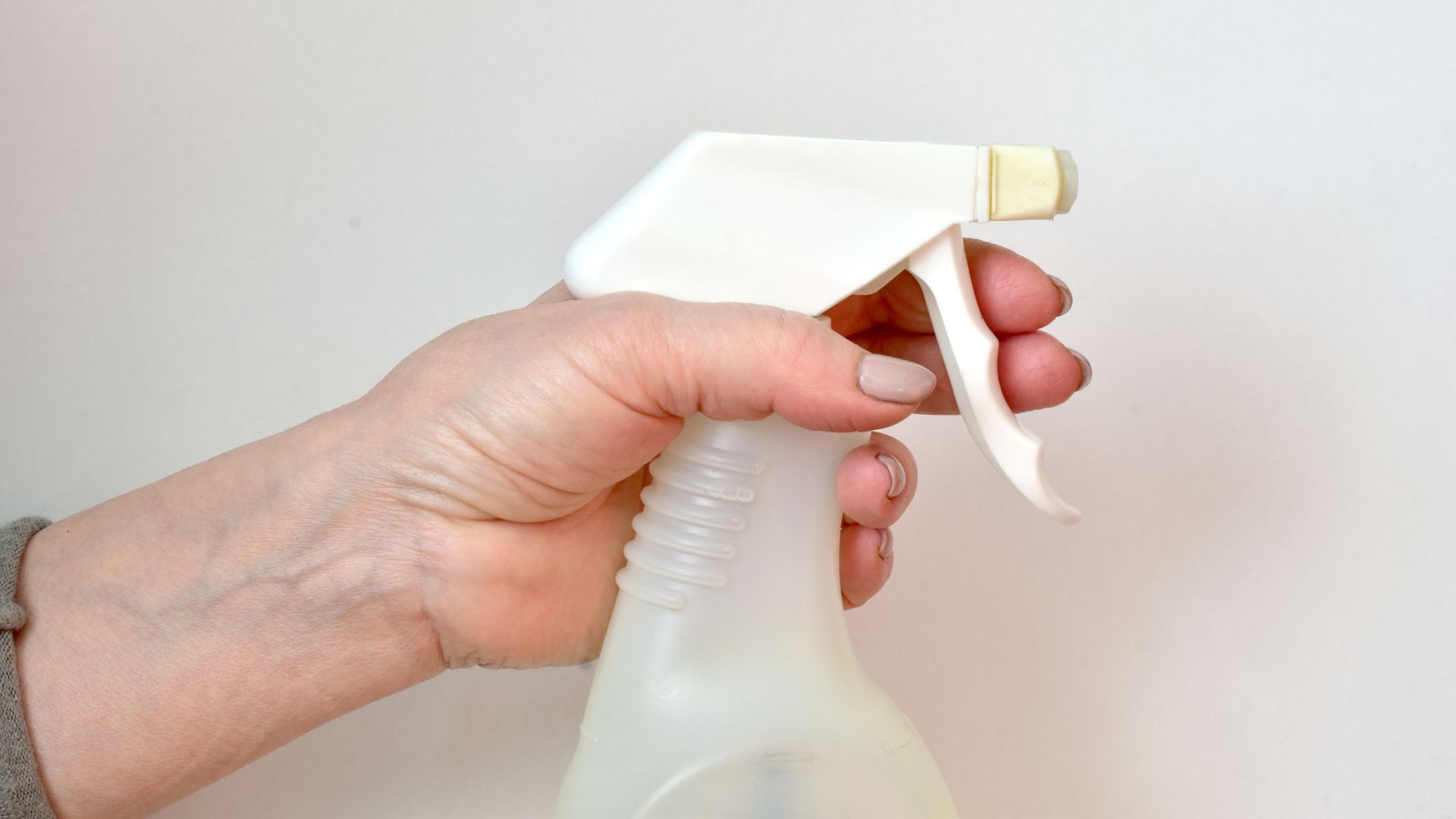
After making your mixture, either pop it into a spray bottle and coat the affected area with it, or pour the mixture into your stainless steel pan – especially if the discoloration is at the base.
Then, scrub at the stain gently, with a soft brush or sponge. You want something that has a bit of friction to it, in order to get at the stain, but remember that when it comes to how to clean stainless steel pans, you shouldn’t be using anything abrasive.
After a little while, you should see the brown stain or mark start to fade.
3. Wash your pan ASAP – and make sure to dry
After scrubbing your pan with your vinegar mixture, Patricia urges that you shouldn’t leave the vinegar to sit for too long. In fact, you should ideally wash your pan (using the method above) immediately after.
"Do not leave the vinegar mixture on the pan for too long, as this can lead to corrosion and further discoloration," she warns.
As discussed, you’ll also want to dry and buff your pan afterwards to ensure that it is returned to its shiny state, without any watermarks.
4. Alternatively, use baking soda for burnt-on food stains
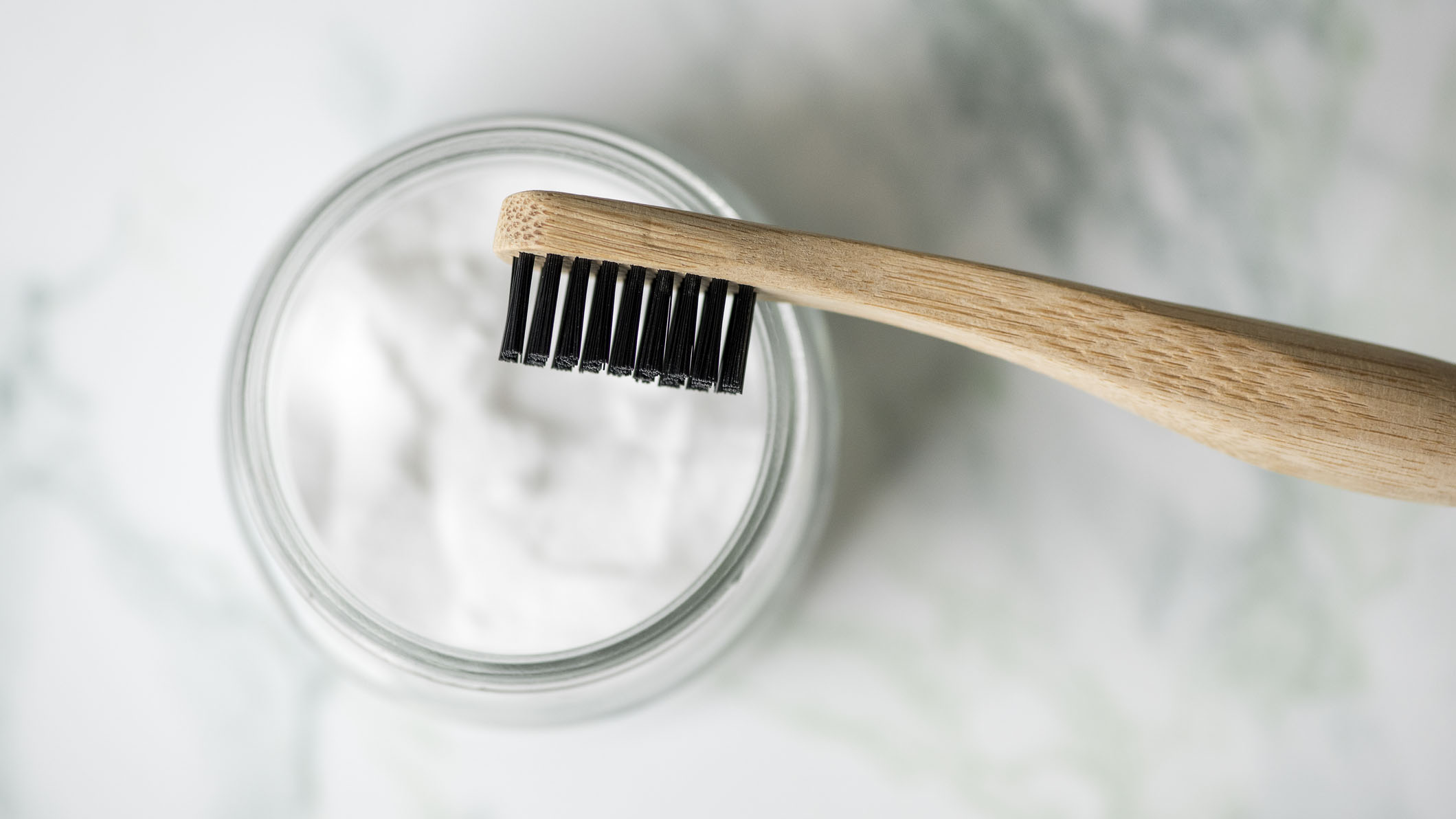
While vinegar should work well on any discoloration, experts advise that a mixture of baking soda and water can also do the trick for seriously burnt pans with stubborn brown marks. So it's a good option if you don't have vinegar to hand, or don't like the smell. In fact, if you're wondering how to clean a burnt pan, or how to clean a cast iron skillet, baking soda is always a great gentle, antibacterial option.
“Rinse your pan with warm water and sprinkle baking soda directly onto the surface you want to clean, covering the entire area," advises Emma. Then, let it sit for a few minutes, before scrubbing it gently with a suitable sponge.
You can even try boiling the mixture to loosen any stains or food debris. "If the pans are quite dirty, I would use baking soda inside the pan and pour some hot water and let it boil on my hob - that gets everything off so well," Nicki said.
Following this, wash the pan as normal before drying.
How do you make stainless steel pots look like new again?
Now you know how to clean stainless steel pans, there are a variety of ways to keep them looking their best, aside from following your solid new cleaning routine. After all, if you invest in the best cookware, you want to keep it looking at its best.
These clever tricks will get your pots and pans looking as new as the day you bought them home – but they'll just take a little bit of time, care and effort.
- Avoid burning them: It might sound obvious, but in order to keep your pans looking super shiny, try and put a stop to burning as much as possible (yes, we’re aware no one does this on purpose!) "To keep your pans looking new, try lowering the heat to stop food from burning onto your pan and causing discoloration,” Emma advises. "And if you have a gas hob, it's best to use a burner that's the same size or smaller than your pan, to prevent the flame from reaching the sides and causing damage."
- Wash ASAP after usage: While it’s important to allow your stainless steel pots or pans to cool after use, one very easy way to keep them looking good is to wash them immediately, no matter how tempting it is to leave them overnight. “The best way to keep your stainless steel pan looking like new is to clean it after every use with warm, soapy water,” says Emma.
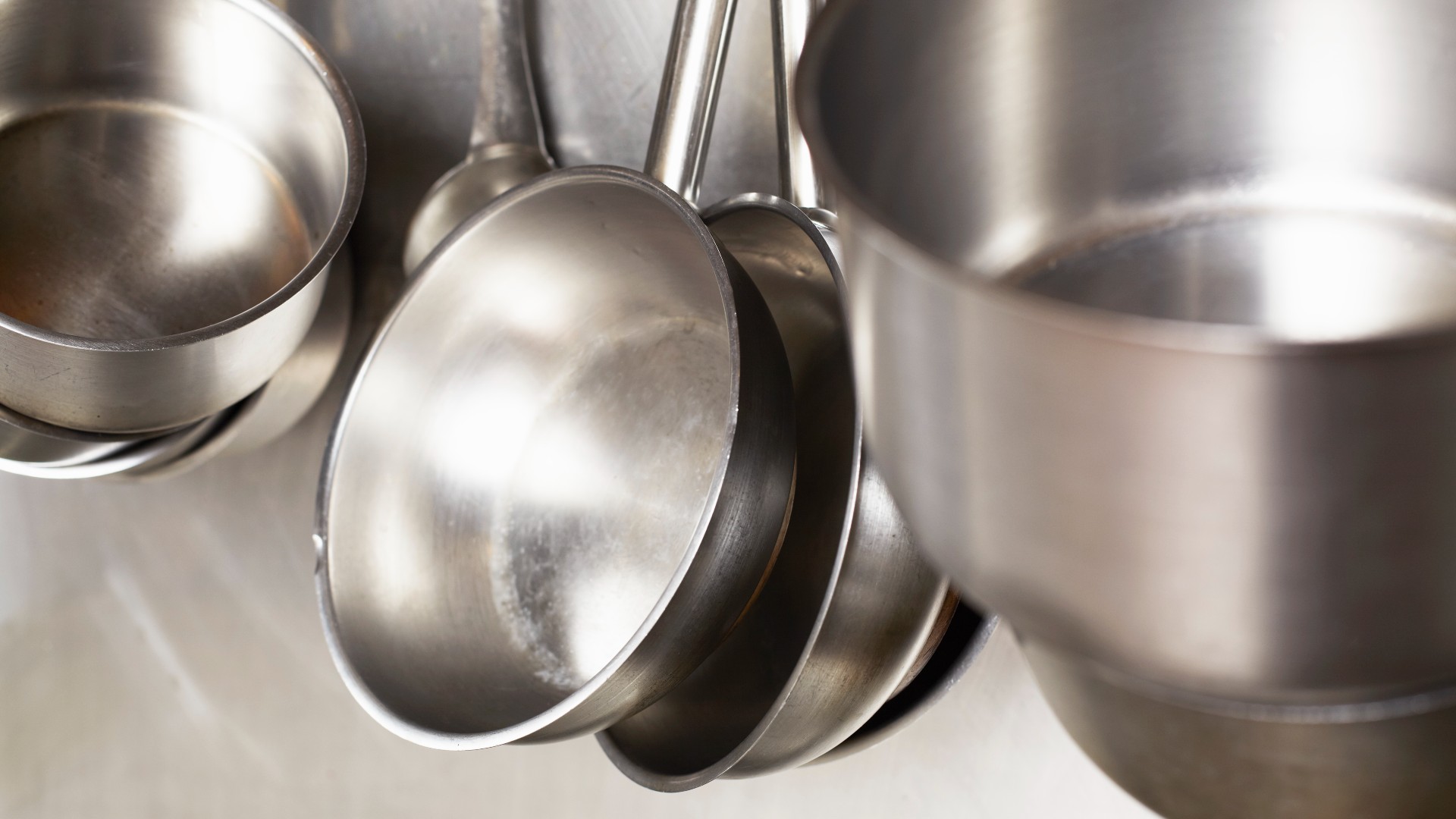
- Treat them with oil: An unusual tip, but an effective one all the same, Patricia suggests using baby oil (though olive oil is a great option too) to spruce your pans up. "I keep them looking like new by rubbing them sparingly with baby oil! I have successfully made the exterior surfaces of my stainless steel pans sparkle by applying a very small amount, and buffing it with a soft cloth,” she tells us. "However, don’t leave it on (e.g. make sure to wash it off), as there is a fire risk if you do. The Le Creuset spokesperson suggested swapping the oil for something more acidic. "Wiping with lemon juice can also bring back the shine to a dull pan interior, and remove spots," they advised.
- Avoid putting them in the dishwasher: While this won't do immediate damage, a Le Creuset spokesperson explained that it's not advisable. "Although generally dishwasher-safe, we recommend hand washing stainless steel pans, as it is gentler than harsh dishwasher detergents."
- Use a stainless steel cleaner and a polishing compound for scratches: If you’re struggling to get your pans looking like new with the above methods, there are a few reliable products you can buy in stores, too. Antoinette told woman&home, “There are many stainless steel cleaners available in the market that can help you remove any stubborn stains or discoloration on the pan," she suggested. "Or, if your pan has scratches or deep stains, you can use a polishing compound, such as Flitz Metal Polish, to restore its shine. Apply a small amount of the compound on the pan and use a soft cloth to buff it until the scratches are gone."
Amy Hunt is an experienced digital journalist specialising in homes, interiors and hobbies. She began her career working as the features assistant at woman&home magazine, before moving over to the digital side of the brand where she eventually became the Lifestyle Editor up until January 2022. Amy won the Digital Journalist of the Year award at the AOP Awards in 2019 for her work on womanandhome.com.
-
 We're in awe of Sienna Miller's easy-going and 'piece-y' hairstyle and how perfect it is for spring
We're in awe of Sienna Miller's easy-going and 'piece-y' hairstyle and how perfect it is for springThis laid-back hairstyle is - quite literally - making waves this season
By Naomi Jamieson
-
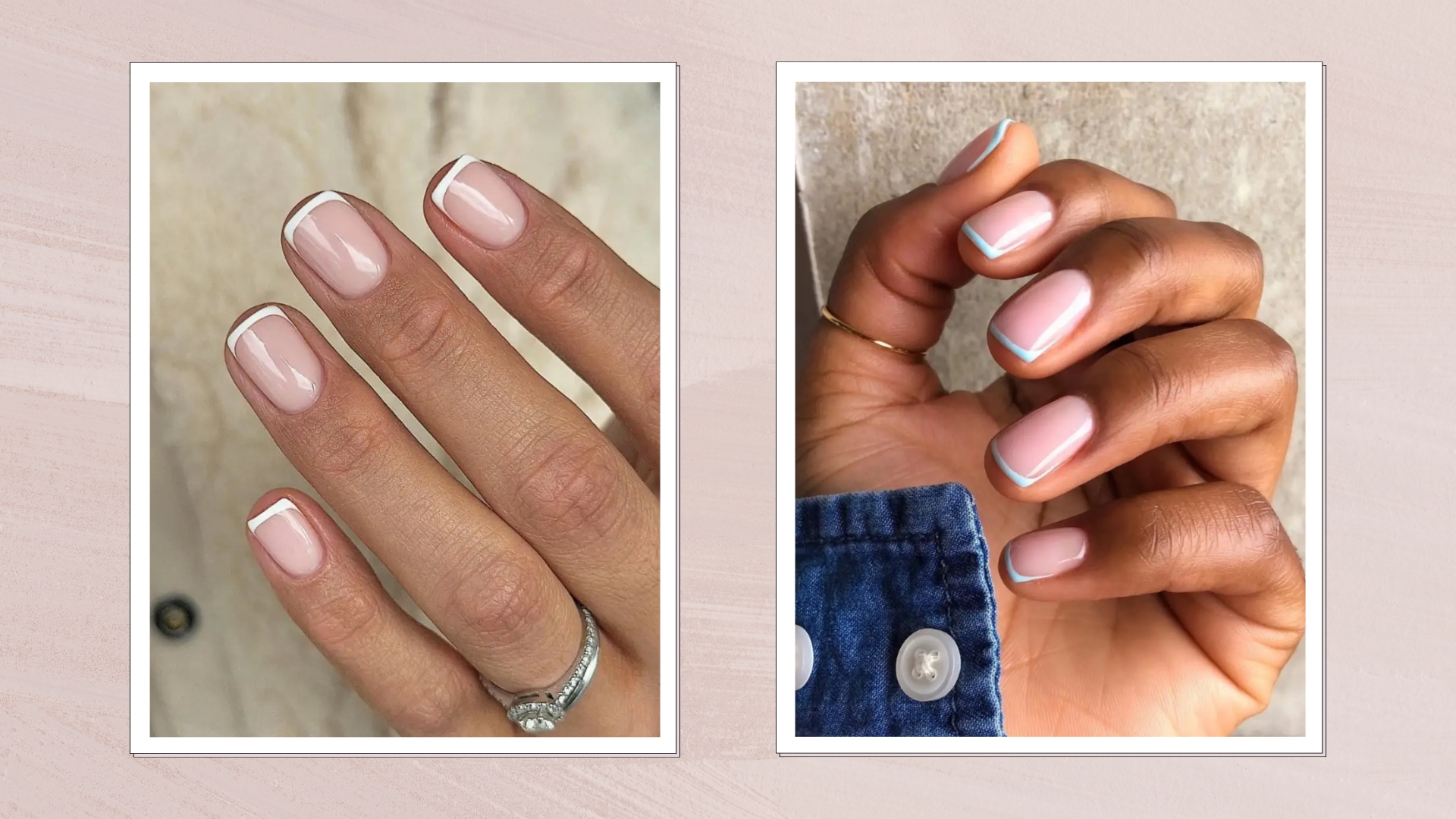 We never thought we'd see this 'dated' manicure make a chic comeback, but here it is - and we're on board
We never thought we'd see this 'dated' manicure make a chic comeback, but here it is - and we're on boardClean and angular, short square French tips are a go-to this season for a practical but stylish manicure...
By Naomi Jamieson
